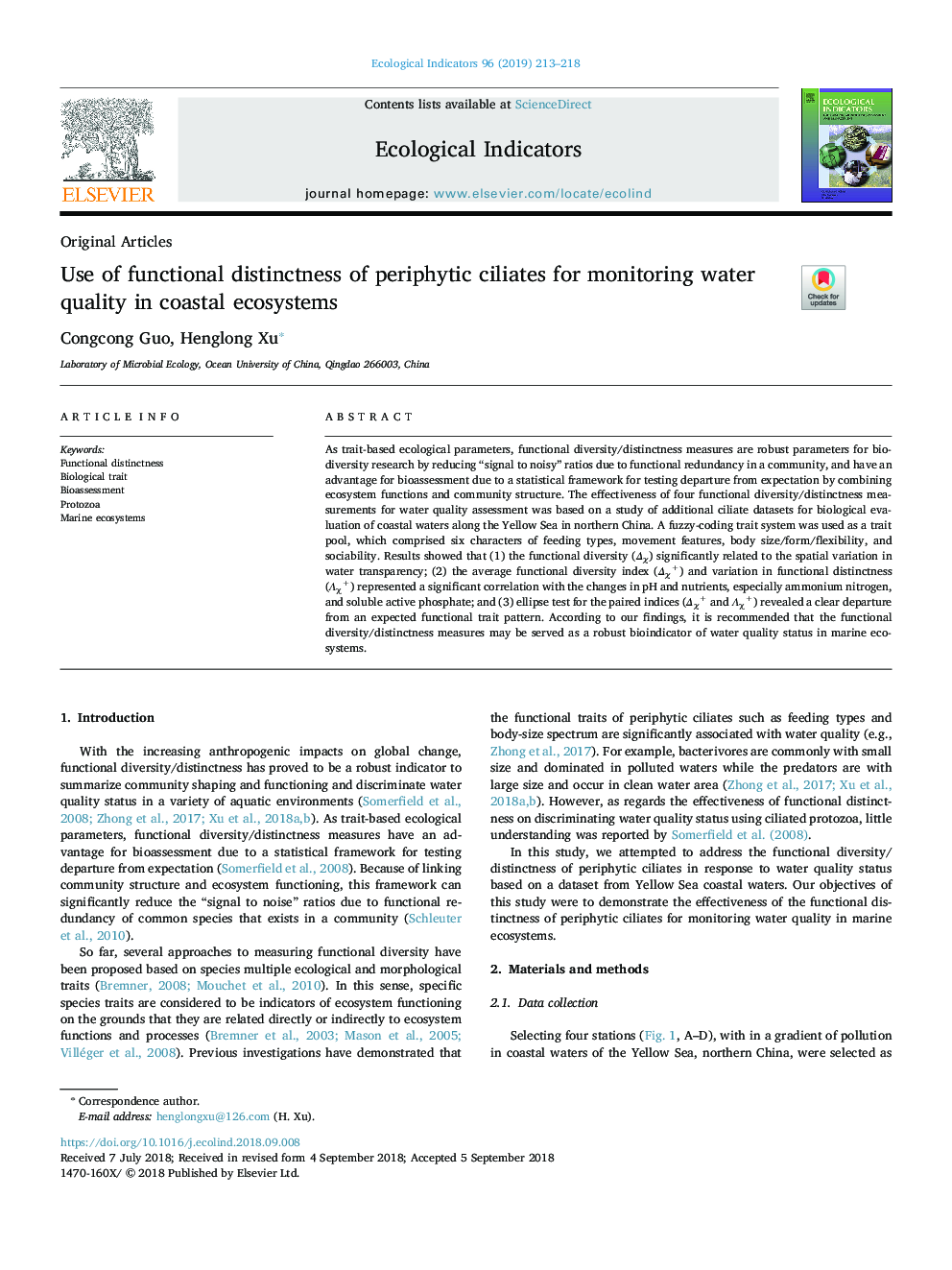| Article ID | Journal | Published Year | Pages | File Type |
|---|---|---|---|---|
| 10144217 | Ecological Indicators | 2019 | 6 Pages |
Abstract
As trait-based ecological parameters, functional diversity/distinctness measures are robust parameters for biodiversity research by reducing “signal to noisy” ratios due to functional redundancy in a community, and have an advantage for bioassessment due to a statistical framework for testing departure from expectation by combining ecosystem functions and community structure. The effectiveness of four functional diversity/distinctness measurements for water quality assessment was based on a study of additional ciliate datasets for biological evaluation of coastal waters along the Yellow Sea in northern China. A fuzzy-coding trait system was used as a trait pool, which comprised six characters of feeding types, movement features, body size/form/flexibility, and sociability. Results showed that (1) the functional diversity (ÎÏ) significantly related to the spatial variation in water transparency; (2) the average functional diversity index (ÎÏ+) and variation in functional distinctness (ÎÏ+) represented a significant correlation with the changes in pH and nutrients, especially ammonium nitrogen, and soluble active phosphate; and (3) ellipse test for the paired indices (ÎÏ+ and ÎÏ+) revealed a clear departure from an expected functional trait pattern. According to our findings, it is recommended that the functional diversity/distinctness measures may be served as a robust bioindicator of water quality status in marine ecosystems.
Related Topics
Life Sciences
Agricultural and Biological Sciences
Ecology, Evolution, Behavior and Systematics
Authors
Congcong Guo, Henglong Xu,
